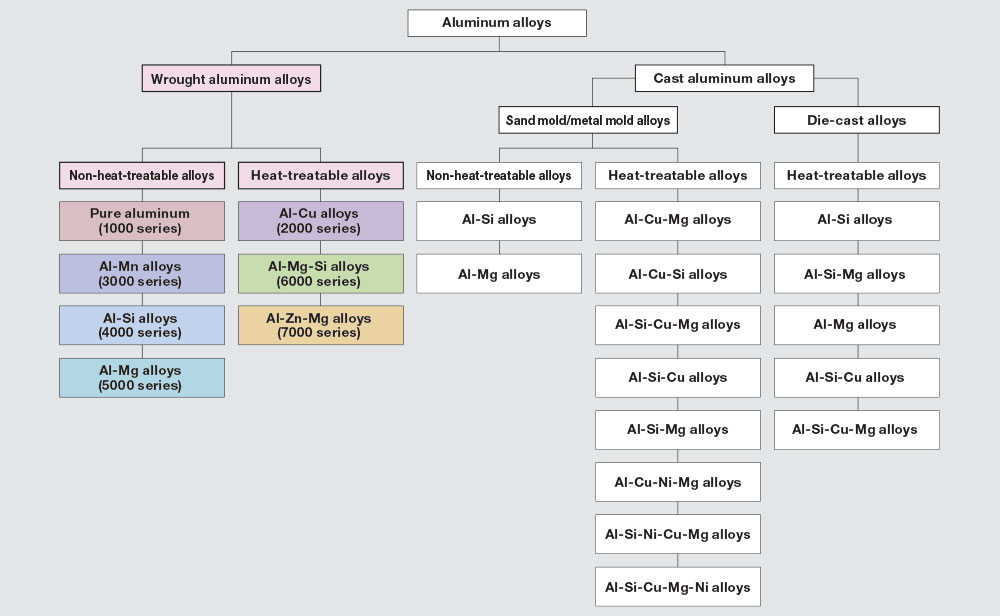Alcast Company Fundamentals Explained
Alcast Company Fundamentals Explained
Blog Article
The Ultimate Guide To Alcast Company
Table of ContentsThe Buzz on Alcast CompanyThe smart Trick of Alcast Company That Nobody is Talking AboutLittle Known Questions About Alcast Company.The Ultimate Guide To Alcast CompanyThe smart Trick of Alcast Company That Nobody is Talking AboutA Biased View of Alcast Company
The subtle difference depends on the chemical material. Chemical Comparison of Cast Light weight aluminum Alloys Silicon advertises castability by reducing the alloy's melting temperature and enhancing fluidness throughout casting. It plays an important role in allowing intricate mold and mildews to be filled up properly. Additionally, silicon adds to the alloy's strength and put on resistance, making it important in applications where longevity is essential, such as vehicle parts and engine elements.It also improves the machinability of the alloy, making it much easier to refine into finished items. In this way, iron adds to the general workability of aluminum alloys.
Manganese adds to the toughness of aluminum alloys and boosts workability (Aluminum Castings). It is frequently used in wrought light weight aluminum products like sheets, extrusions, and accounts. The visibility of manganese help in the alloy's formability and resistance to breaking throughout construction processes. Magnesium is a lightweight element that provides stamina and impact resistance to light weight aluminum alloys.
Not known Facts About Alcast Company
It permits the manufacturing of light-weight parts with excellent mechanical properties. Zinc improves the castability of light weight aluminum alloys and assists manage the solidification procedure during casting. It boosts the alloy's strength and firmness. It is usually located in applications where intricate forms and great details are required, such as attractive castings and certain automobile parts.

The main thermal conductivity, tensile stamina, yield stamina, and elongation differ. Among the above alloys, A356 has the greatest thermal conductivity, and A380 and ADC12 have the least expensive.
The Facts About Alcast Company Revealed

In precision casting, 6063 is well-suited for applications where detailed geometries and high-quality surface finishes are paramount. Examples include telecommunication rooms, where the alloy's superior formability permits streamlined and cosmetically pleasing designs while preserving architectural honesty. In the Illumination Solutions market, precision-cast 6063 parts develop elegant and effective lighting fixtures that call for intricate shapes and excellent thermal efficiency.
The A360 displays remarkable elongation, making it optimal for complicated and thin-walled parts. In accuracy spreading applications, A360 is appropriate for industries such as Customer Electronic Devices, Telecommunication, and Power Tools.
Not known Details About Alcast Company
Its one-of-a-kind properties make A360 a useful choice for precision casting in these sectors, improving product durability and high quality. Light weight aluminum alloy 380, or A380, is a widely utilized spreading alloy with several unique attributes. It offers outstanding castability, making it an excellent choice for precision spreading. A380 shows good fluidity when molten, making certain intricate and in-depth mold and mildews are properly recreated.
In precision spreading, aluminum 413 shines in the Customer Electronics and Power Devices markets. This use this link alloy's exceptional deterioration resistance makes it a superb option for outdoor applications, making certain resilient, durable items in the discussed sectors.
Alcast Company - Questions
As soon as you have made a decision that the light weight aluminum die casting procedure appropriates for your project, an essential following action is making a decision on one of the most suitable alloy. The light weight aluminum alloy you choose will significantly influence both the casting process and the residential or commercial properties of the end product. Due to this, you have to make your decision thoroughly and take an educated strategy.
Figuring out one of the most suitable aluminum alloy for your application will mean evaluating a large selection of characteristics. These comparative alloy attributes follow the North American Pass Away Spreading Organization's standards, and we've split them into two categories. The initial group addresses alloy attributes that influence the production process. The second covers features impacting the properties of the end product.
What Does Alcast Company Do?
The alloy you pick for die casting straight impacts several elements of the casting procedure, like how simple the alloy is to work with and if it is vulnerable to casting problems. Warm splitting, also called solidification breaking, is a common die casting flaw for light weight aluminum alloys that can cause interior or surface-level rips or cracks.
Specific light weight aluminum alloys are much more at risk to hot splitting than others, and your option should consider this. One more usual problem discovered in the die spreading of aluminum is die soldering, which is when the actors sticks to the die wall surfaces and makes ejection difficult. It can damage both the actors and the die, so you need to search for alloys with high anti-soldering residential properties.
Rust resistance, which is currently a significant attribute of light weight aluminum, can differ significantly from alloy to alloy and is an important particular to think about depending on the environmental conditions your item will be subjected to (aluminum casting company). Use resistance is an additional residential property frequently sought in aluminum items and can separate some alloys
Report this page